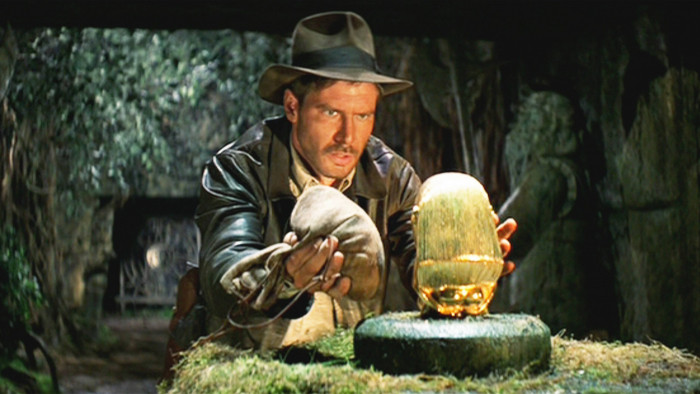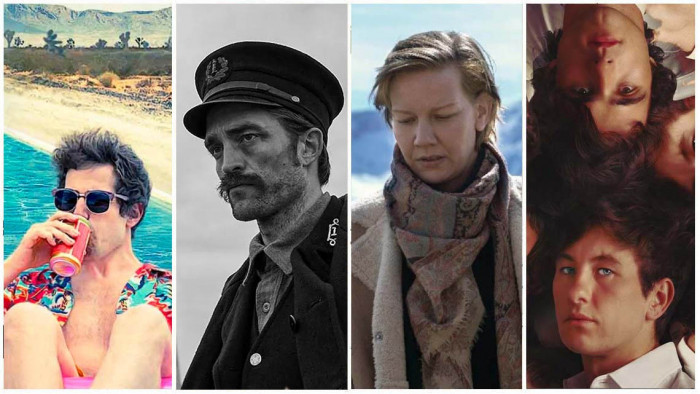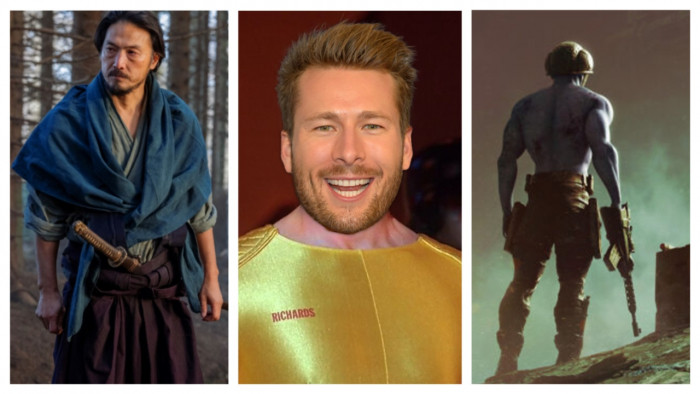As Stand By Me turns 25, Jimi Famurewa speaks to the cast and crew to look back on the film that shaped a generation...
Fittingly, it all started with four friends sharing jokes and stories until the sun went down. Two years after cranking laughter levels up to 11 with This Is Spinal Tap, Rob Reiner was looking for something quieter and infinitely more personal to direct when old producer pals Andy Scheinman, Ray Gideon and Bruce Evans presented him with a script for a possible adaptation of the Stephen King novella The Body. All four men locked themselves away, illuminated by strip lighting rather than a campfire, to rewrite the screenplay for what would ultimately become Stand By Me.
“We worked every day until we got it where we liked it. It was kind of funny because there were us four guys and there were four kids in the movie,” laughs Reiner during an interview with ShortList. “I’m definitely Gordie,” he continues, referencing the lead character Gordie Lachance, played by Wil Wheaton. “That’s when it struck me what the movie was about, really. I had issues with my own father when I was young, so I could relate to him. It’s Gordie’s story but it’s all about a rite of passage.”
He’s not wrong. Twenty-five years, two Golden Globe and one Oscar nomination, and one poignant real-life death after it first hit cinemas, Stand By Me is still the quintessential coming-of-age film. Hailed by the Los Angeles Times on its release as “a perfectly performed look at the real heart of youth”, the story of four school friends searching for a dead body in the blazing summer of 1959 still has the power to induce ‘something-in-my-eye syndrome’ in even the toughest viewer.
EFFORTLESS NOSTALGIA
From its Fifties jukebox soundtrack to a central quartet of characters echoed in everything from The Inbetweeners to The Hangover, it’s the sort of film that gets under your skin. The sort that, even if you haven’t watched it in years, conjures memories of hurtling trains, leech-infested swamps and regurgitated blueberry pies that are so vivid they almost seem to belong to your own childhood.
“When we were making the film we had this sense that we were making something special,” explains Wheaton. “I’m grateful to have been a part of something that has touched a generation so much that it endures.” Corey Feldman, as hot-headed war obsessive Teddy Duchamp, describes the film to us later as “something poetic”.
It’s hard to think now that the project stalled in development hell over wrangles with the script. And if it hadn’t have been for a slice of fridge-raiding Eighties erotica, things would have been very different.
British director Adrian Lyne was originally attached to the project, but his reluctance to de-fog his lens and get back behind the camera so soon after finishing 9½ Weeks opened the door for Reiner and his frenzied rewrites. “I read the script as a friend and told them [Scheinman, Gideon and Evans] that if Adrian didn’t want to do it, I would,” says Reiner, recalling his worried state. “At that point I started getting migraines. I thought, ‘I’ve agreed to do something here and I don’t really know what the story is.’”
Thankfully, his headaches didn’t last too long, and things started to fall into place. First went the name (“Calling it The Body with Stephen King attached [would have meant] people would think it was a horror movie,” laughs Reiner), which was eventually replaced by the new director’s favourite soul track. After the screenplay sessions came the recruitment of a cast of kids that would each turn in preternaturally excellent performances, and slowly, what Reiner brands “the most important summer of [my] professional life” took shape.
Wheaton and Feldman were joined by River Phoenix as tortured tough guy Chris Chambers and newcomer Jerry O’Connell as portly Pez fan Vern Tessio. Was it tough keeping four pubescent boys in check? “They were pretty good, I’ve got to say,” admits Reiner. “We worked for almost four weeks before we started filming, doing acting classes and improvisation so by the time we started shooting they were a well-oiled unit.”
There were rafting trips and games of baseball during shooting breaks too, but Reiner does admit to being slightly oblivious to what was actually happening on set. Probably for the best, given Feldman’s contradictory account.
“We were just being reckless kids. Jerry and I got into trouble for throwing patio furniture into the pool, I remember River and I renting Caligula and a Penthouse video and all sorts of perverse things,” he laughs. “It was also my first exposure to marijuana, alcohol and cigarettes. It was kind of like a bird being let out of a cage.” According to Reiner, future A-listers Kiefer Sutherland and John Cusack (who played local bully Ace and Gordie’s late brother Denny respectively) were suitably “wild” too and at one point “rolled a car off a sand bank” on set.
Conspicuous by his absence was Wheaton, who preferred nerdy pursuits (“There was a terrific video arcade a couple of blocks away from the hotel, so I spent a lot of time there”), but there’s a pervading sense that the characters on screen weren’t the only ones coming of age.
“All of us have described it in some way or another as sort of like a summer camp, and I think that’s really true,” says Wheaton. “It’s one of those experiences that, just as it changed the characters in the movie, changed all of us a little bit too.”
REMEMBERING RIVER
There were grim moments amid the fun, though. That infamous swamp ended up being far more realistic than intended after production staff let the man-made lagoon fester for four sweltering months.
The leeches weren’t real but the actors’ discomfort was. “There was a lot of muck and it was quite cold,” gripes Feldman. “Yeah, I didn’t like the swamp either,” agrees Wheaton. “But years later I saw Jerry say, ‘I don’t know what was wrong with these Hollywood p*ssies. It was just a hole in the ground with water in it.’”
The voice missing in all this misty-eyed nostalgia at the recent cast and crew reunion last March is obviously River Phoenix. Stand By Me’s mythic quality grew considerably since the actor’s untimely death at the age of 23 in 1993 and the mirroring of his character’s tragic fate in the film is eerie. Has it made their memories bittersweet?
“It’s so sad. Every time I see that scene when he disappears at the end of the movie, it’s chilling,” says Reiner. “I never thought River was going to be the one who would struggle — he was a good kid and he was so talented. He would’ve been [like] Johnny Depp or Leonardo DiCaprio. It was such a tragic loss.”
Wheaton, who was close to Phoenix during filming, goes even further. “Around the time River died I hadn’t talked to him for years, so I carry a little bit of guilt,” he says, his voice cracking slightly. “But we do what we can and enough time has elapsed now that when I watch it, I recall, with tremendous fondness, the experiences we had shooting it. But honestly, mostly I just enjoy the story.”
He’s got a point. For all the personal nostalgia, real world emotion and backstage antics at play, the main reason Stand By Me still resonates a quarter of a century later is right there, woven into the plot of its 89-minute running time. Not bad for something four friends thrashed out one summer.
Stand By Me is released on Blu-ray on 8 August
Images: Rex
Latest
Related Reviews and Shortlists


The 10 best war movies of the 21st century









